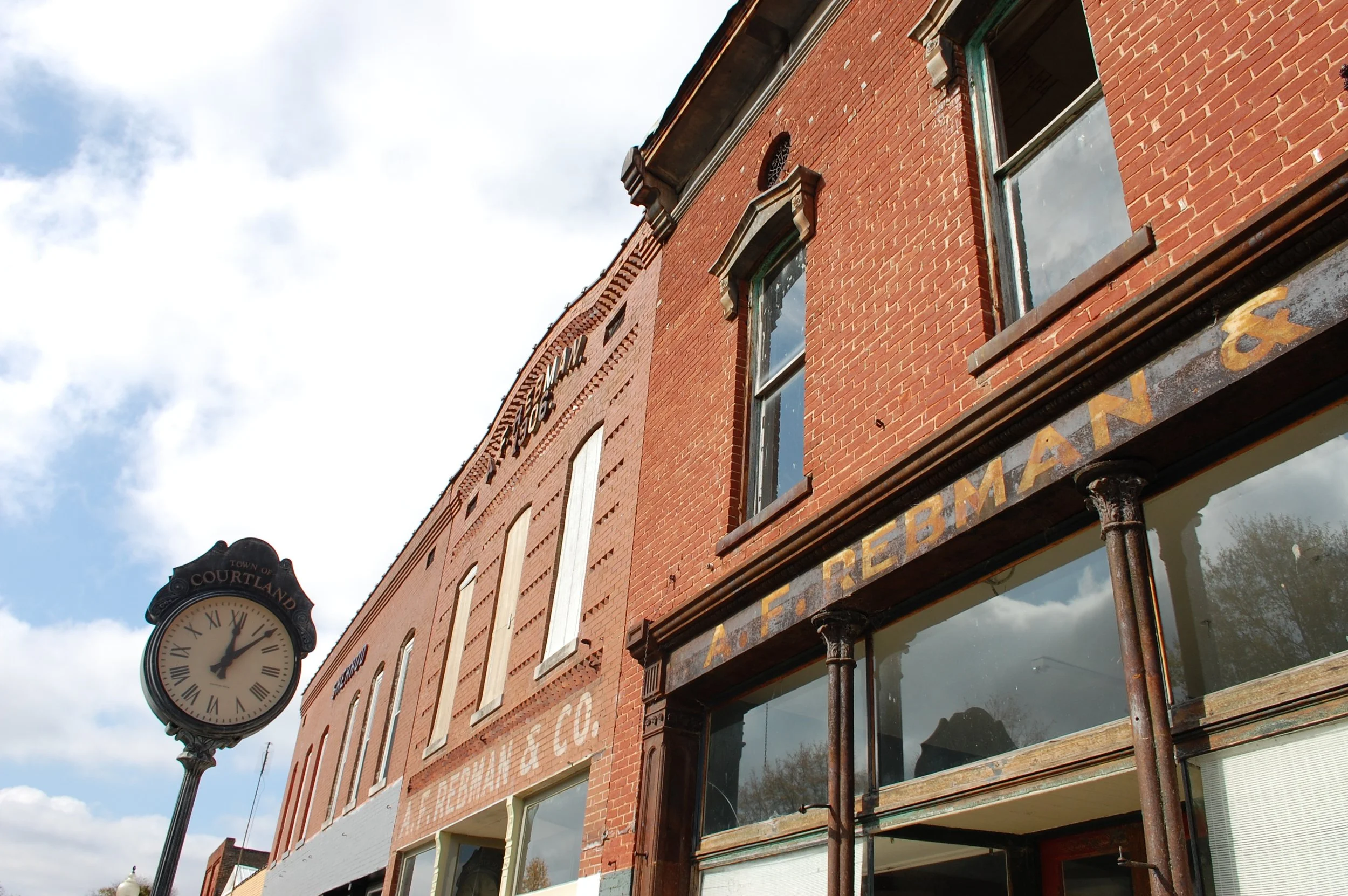The Way We Remember Courtland
ROOTED IN MEMORY: When folks are asked what comes to mind when they think of Courtland, Alabama, the answers spill out like an old photo album come to life—smudged with time, but bursting with color. For many, it begins with a smell: not of perfume or pine, but of paper. “It didn’t smell bad,” wrote Brandi Terry Shankle. “It smelled like money.” The Champion Paper Mill, and later International Paper, shaped generations of livelihoods and memories—its hum and haze part of the backdrop of growing up in Courtland.
Danny Claborn remembers Courtland’s former glory, recalling that it was once “the richest town in America for its size.” Those days, Bettie Hollis added, “each building was full of merchandise of some sort—groceries, shoe shop, clothing, great school, eateries; not to mention two drug stores and good caring doctors.”
And those doctors—Dr. Carpenter, Dr. Ussery, and Dr. Wilson—were local legends. Their names appeared again and again in the thread, a testament to their years of caring for families from cradle to grandparenthood. “Dr. Carpenter” alone earned half a dozen mentions, his office etched in the minds of many who once sat nervously in its waiting room.
Across the tracks, Buck’s Frosty Dip served up cones and burgers, while Hughes Drug Store grilled honey buns topped with ice cream. Amy Terry Seymore painted a vivid scene of Saturday life: “Shoes from Crow’s Shoe Store, Sue’s Beauty Shop, Bobbie Burgers… too many great memories to name.” Courtland was bustling then—a place where the park was lively, the Christmas parade was a highlight, and everyone knew where to find the best cornbread.
For some, the memories carry a more personal warmth. Kathy Terry Rikard recalled tagging along with her dad on Saturdays: “He went to the bank, then to the barber shop. I’d go to the drugstore and have a burger and fries with a Coke. I thought I was grown.” Others remember the paper mill shifts, the airbase races, and the hum of community gatherings on the square.
There’s history, too—both beautiful and sobering. Robert Jones mentioned the old slave blocks that still stand in town, calling them “a reminder of injustice” but also a lesson “to preserve and remember.” And Sharon Waters Englereminded readers of the Civil War-era homes still standing, their beauty outlasting economic dips and changing times.
To many, Courtland is “Mayberry and Happy Days” rolled into one, as Nancy Giles put it—a town where the biggest worry might have been a speed trap or a power outage, and where even that became part of the charm. Others, like Heather Brown, look forward: “The new librarian is doing a fantastic job at breathing new life into Courtland. There is so much potential there and I can’t wait to see its future.”
Still, nostalgia remains the common thread. Whether it’s The Chiefs football pride, air shows over the old base, or simply “family” and “home,” the word Courtland evokes more than geography. It’s a feeling—a shared heartbeat among those who left, those who stayed, and those who, wherever they roam, will always call it home.
What’s one local business or tradition you’d love to see return to Courtland? How do you think the town’s history could be better preserved for future generations?

